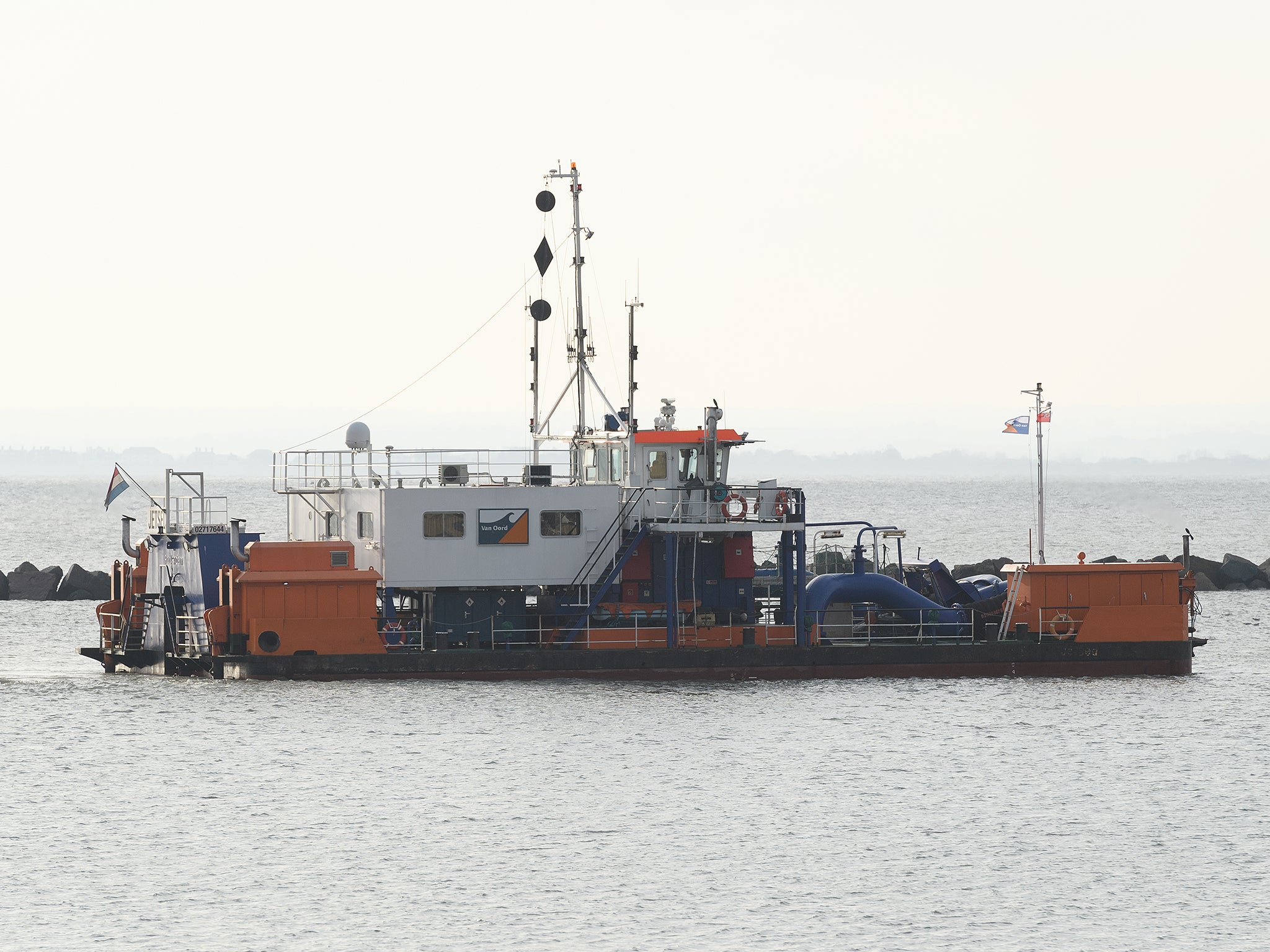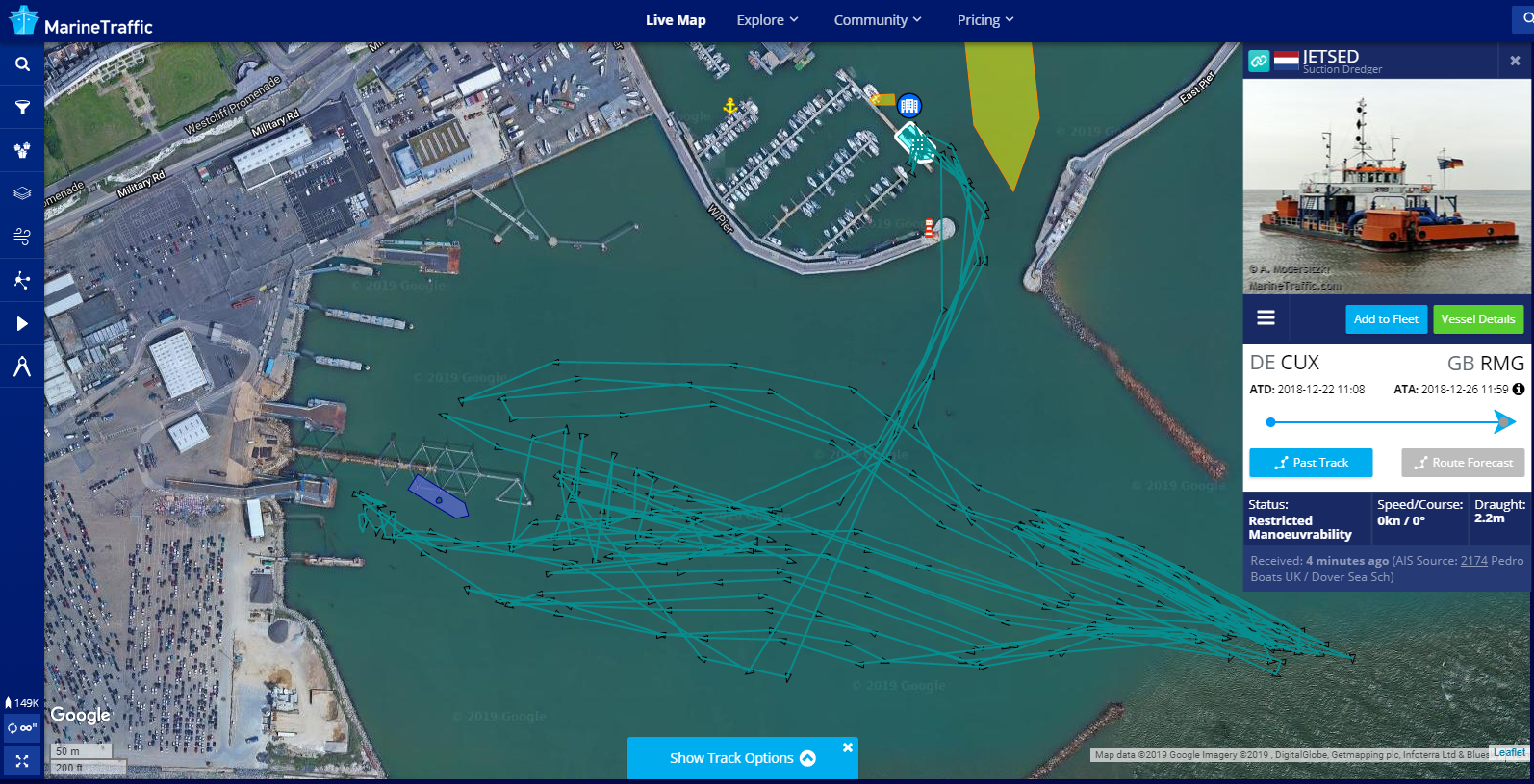Cabinet minister Chris Grayling to face parliament over claims he ‘misled MPs’ about Brexit ferry deal
Labour will raise a point of order in the Commons later on Tuesday
Chris Grayling is to face accusations in the Commons that he misled MPs over a botched government ferry contract, with Labour set to demand that the minister justify his claim that no money had been spent on the deal.
The transport secretary told MPs on Monday that the government had spent “no money” on the multimillion-pound contract with Seaborne Freight, but it later emerged that the Department for Transport (DfT) paid external consultants £800,000 to assess the deal and two other freight contracts.
Mystery also surrounds dredging work still being carried out on Tuesday to prepare Ramsgate port for ferry services. The work is estimated by local campaigners to cost hundreds of thousands of pounds but it is unknown who is footing the bill.
Under its contract with Seaborne, the DfT had agreed to pay Thanet District Council up to £3m to make the port usable for freight ferries but no money has yet been transferred.
The revelations piled further pressure on the beleaguered transport secretary, who is already facing calls to resign over the fiasco.
The Independent understands Labour will raise a point of order in the Commons later on Tuesday, with Mr Grayling set to face calls to explain his comments.
The shadow transport secretary, Andy McDonald, said: “We cannot afford to tolerate the transport secretary’s incompetence or misleading statements any longer.
“The prime minister should have sacked him long ago but if he has any sense of responsibility and decency, he will offer his resignation today.”
The decision to award the £13.8m contract to Seaborne Freight was widely criticised earlier this year after it emerged that the company did not own any ferries.
Mr Grayling was forced to scrap the deal last week after Seaborne’s main apparent backer, Irish firm Arklow Shipping, withdrew its support.
Facing a grilling on the issue from MPs, he insisted on Monday: “We have spent no money on this contract.”
However, a memo from the National Audit Office, the government spending watchdog, said £800,000 had been paid to external consulants Slaughter and May, Deloitte and Mott MacDonald to scrutinise the three deals.
Mott MacDonald had identified “significant execution risks” in awarding the contract to Seaborne Freight, the document said.
Defending his decision in the Commons on Monday, Mr Grayling said the government was “fully aware of Seaborne’s status as as startup business and the need for Seaborne to procure vessels and port-user agreements in order to deliver a service” and added: “As I have made clear, not a penny of taxpayers’ money has gone, or will go, to Seaborne.”
But Mr McDonald said Mr Grayling was “off the Richter scale of incompetence” and called on him to be removed from his role by the prime minister.
“The failure of the transport secretary to correct the record and his repeating of the misleading claim suggests that he intentionally provided MPs with false information,” Mr McDonald said to Theresa May.
“In all these circumstances, so as to restore some semblance of credibility to the office of the secretary of state for transport, I ask you the relieve the incumbent of his post.”
Meg Hiller, chair of the influential Commons Public Accounts Committee, said there were “serious issues” in the way DfT had handled the tender and vowed to press officials on the matter at a meeting on Wednesday.
“The Department for Transport waited until September 2018 to start thinking about the risks to freight transport across these important routes,” she said.
“We will be pressing the department for answers on how it awarded its three new ferry contracts, what it is doing to manage risks and exactly what it intends to do now it has axed the contract with Seaborne.”
Dredging costs

Among issues to be probed by Ms Hillier will be the costs of preparing Ramsgate for a Brexit ferry route.
On Tuesday a vessel owned by Dutch company Van Oord was still dredging the port to remove silt and make it deep enough for ferries to dock and turn, despite no freight contract being in place.
Thanet District Council said it had not contracted anyone for dredging, and county councillor Paul Messenger told The Independent that he and fellow councillors had been kept in the dark about where the money was coming from.
Seaborne Freight director Glenn Dudley said that his company had handled the dredging contract but did not state where funding had come from and refused to answer further questions.
It is unclear how Seaborne, a company with no assets and whose only known contract has now been cancelled, could shoulder any dredging costs which local campaigners calculate to be at least £400,000 and which could spiral to several million.
Mr Messenger said there is a likelihood that costs will balloon and work could take several months if more comprehensive dredging is required, while North Thanet MP Sir Roger Gale has said he believes the operation could cost up to £4m.
Despite pledging to “not spend a penny” of taxpayers’ money on the Seaborne contract, Mr Grayling did not rule out a government takeover of Ramsgate port when questioned on Monday.
Asked by Sir Roger Gale if there was anything preventing the DfT stepping in, the transport minister told the Commons he had been “very clear that we have to be mindful of the financial position of Thanet council and we must make sure that they are not exposed to the broader financial risk of the broader resilience work being done right across Kent”.
Closed tender
According to the NAO, Mr Grayling’s department only realised in September that extra freight capacity would be needed to prevent significant no-deal Brexit disruption at crucial Channel ports supplying more than a fifth of the UK’s goods.
The DfT decided not to go through the normal open tender process, believing that this could notify the market and push up prices for additional freight. Instead, nine ferry operators were contacted privately and asked to bid.
Only three did so: DFDS, Britanny and Seaborne. All three were awarded contracts in December, with the public notices quietly published on Christmas Eve. Lack of interest meant the government received offers for less than half of the capacity it had hoped and could supply a maximum of 11 per cent of the freight currently going through the short Channel routes.
The DfT went ahead with the deals despite finding that Seaborne was “non-compliant with the requirements set out in the invitation to tender”.
“As a new business without significant financial history, Seaborne were unable to satisfactorily meet the requirements of the economic and financial standing assessment,” the NAO said.
“The department, considering the information it held on the bidders and the due diligence it had undertaken, decided to award contracts to all three bidders.”

‘High-risk proposition’
Mr Grayling’s department ignored numerous warnings from highly paid consultants about the Seaborne contract, the NAO said. After spending £800,000 on consultancy fees the DfT assessed the contract as being a “high-risk proposition” late last year but went ahead with it in any case. Despite the alarm bells Mr Grayling insisted publicly in January that the contract was “not a risk”.
In November, DfT advisor Deloitte said that it could not assess Seaborne’s financial stability because the company had only been registered in July 2017. Mr Grayling’s department last week earmarked a further £800,000 to pay legal fees relating to Channel Tunnel operator Eurotunnel which is suing the DfT for its “secretive and flawed procurement process”.
The DfT’s accounting officer reviewed the Seaborne decision, which found that failure to act would mean losing “the ability to secure ferry capacity that could protect critical goods under a no-deal exit” and that “reasonable measures” had been taken to ensure value for money.
The Treasury then approved the deal. Among risks identified were “teething troubles” due to Seaborne’s inexperience, the fact that the company had no contracts to use either Ramsgate or Ostend ports and had no ships chartered. The DfT also raised concerns about the work needed to get Ramsgate ready for use and a recruitment process for Border Force officers. Former Thanet District Councillor Ian Driver told The Independent this week that the site remained “like a bombsite”.
Mr Messenger of the county council said it was regrettable that Ramsgate and its 40,000 residents were being “used as pawns” in a battle between Leave and Remain factions.
The councillor is backing alternative proposals to transform Ramsgate into a marina focused on leisure and tourism rather than freight. The proposals are commercially viable, unlike the freight option, and will mean less pollution and disruption for local residents, Mr Messenger said.
Join our commenting forum
Join thought-provoking conversations, follow other Independent readers and see their replies
Comments
Bookmark popover
Removed from bookmarks